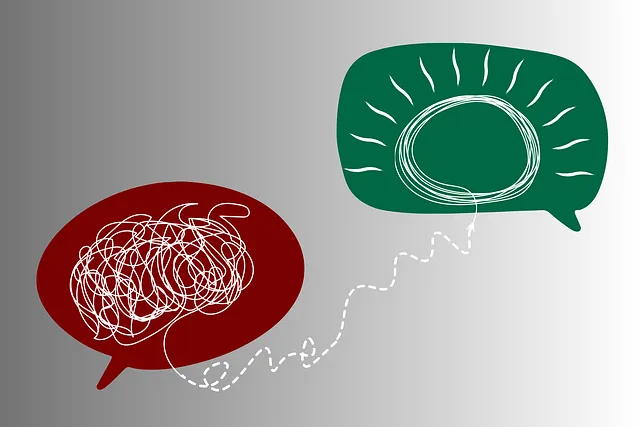Castle Rock Kaiser Permanente psychiatry prioritizes cultural diversity in mental healthcare, offering personalized treatments tailored to patients' unique backgrounds. Their team uses evidence-based methods and Mood Management techniques sensitive to diverse cultures, fostering trust and understanding. Overcoming barriers like lack of training through robust Mental Health Policy initiatives and open dialogue, they enhance care delivery for diverse patient backgrounds. Effective communication strategies, including cultural sensitivity training and public awareness, build trust and improve outcomes, setting a standard for inclusive mental healthcare in Castle Rock.
In a diverse society, cultural sensitivity is paramount in mental healthcare. This comprehensive guide explores how Castle Rock Kaiser Permanente Psychiatry prioritizes cultural diversity, offering insights into its successful practices and strategies. From understanding the nuances of various cultures to implementing effective communication techniques, we delve into the essential role of cultural sensitivity. Learn from case studies showcasing how this approach enhances patient care, reflecting the positive impact on mental health outcomes at Castle Rock Kaiser Permanente.
- Understanding Cultural Diversity in Mental Healthcare
- The Role of Cultural Sensitivity at Castle Rock Kaiser Permanente Psychiatry
- Barriers to Culturally Responsive Care and How to Overcome Them
- Effective Communication Strategies for Diverse Patients
- Case Studies: Successful Implementation of Cultural Sensitivity in Practice
Understanding Cultural Diversity in Mental Healthcare

In the diverse landscape of mental healthcare, understanding cultural diversity is paramount to providing effective treatment. At Castle Rock Kaiser Permanente psychiatry, we recognize that individuals from different ethnic, racial, and cultural backgrounds may have unique psychological experiences shaped by their social environments. This includes variations in communication styles, expression of emotions, and perceptions of mental illness, which can significantly impact the patient-provider relationship. By embracing this diversity, our team aims to create a safe and inclusive space where every patient feels heard and understood.
Social Skills Training and Communication Strategies play a crucial role in bridging cultural gaps. We tailor these evidence-based approaches to accommodate diverse needs, ensuring that patients from various cultural backgrounds can effectively communicate their symptoms and concerns. Additionally, integrating knowledge of Mood Management techniques sensitive to cultural contexts allows our psychiatrists to offer personalized treatments that address not just the mental health disorder but also the individual’s cultural identity and beliefs.
The Role of Cultural Sensitivity at Castle Rock Kaiser Permanente Psychiatry

At Castle Rock Kaiser Permanente Psychiatry, cultural sensitivity is not just a practice but a cornerstone of patient care. We recognize that mental health experiences and expressions vary greatly across different cultures, ethnic backgrounds, and communities. Our team, comprising diverse professionals, understands the importance of tailoring therapeutic approaches to respect and incorporate each patient’s unique cultural context. By doing so, we foster an environment of trust and understanding, ensuring effective treatment.
We integrate compassion cultivation practices into our routine, encouraging both patients and staff to develop emotional resilience and self-care abilities. Additionally, our crisis intervention guidance is guided by a multicultural lens, enabling us to respond sensitively during moments of distress. We believe these approaches not only enhance therapeutic outcomes but also promote overall well-being, reflecting our commitment to holistic mental healthcare at Castle Rock Kaiser Permanente Psychiatry.
Barriers to Culturally Responsive Care and How to Overcome Them

In providing culturally responsive care, mental healthcare practitioners often encounter barriers that hinder effective treatment, especially in diverse communities like those served by Castle Rock Kaiser Permanente psychiatry. One significant obstacle is a lack of Mind Over Matter Principles—the understanding and appreciation of cultural nuances that shape individuals’ experiences and expressions of mental health issues. This can stem from insufficient Healthcare Provider Cultural Competency Training, which is essential for building the skills needed to navigate diverse patient backgrounds and preferences.
To overcome these barriers, institutions like Castle Rock Kaiser Permanente can implement robust Mental Health Policy Analysis and Advocacy initiatives. This involves promoting ongoing training programs that educate healthcare providers on cultural sensitivity, implicit biases, and microaggressions. Additionally, fostering a culture of open dialogue where providers share experiences and learn from each other’s interactions with patients from various cultural backgrounds can significantly enhance care delivery.
Effective Communication Strategies for Diverse Patients

In a diverse healthcare setting like Castle Rock Kaiser Permanente psychiatry, effective communication strategies are paramount to ensuring quality care for all patients. Mental health professionals must adapt their approach based on cultural backgrounds, languages, and unique experiences. For instance, understanding non-verbal cues and incorporating culturally relevant terminology can bridge the gap between patient and provider. Public Awareness Campaigns Development plays a crucial role in promoting these strategies by educating both healthcare workers and communities about the importance of cultural sensitivity.
By adopting inclusive communication methods, mental health professionals can foster trust and create a safe space for patients to express their concerns openly. This is particularly essential when addressing issues like anxiety, where cultural factors may influence the manifestation and perception of symptoms. Mental Health Policy Analysis and Advocacy also contribute by highlighting the need for tailored interventions that respect diverse beliefs and practices. Ultimately, these strategies not only enhance patient outcomes but also promote equitable access to mental healthcare services.
Case Studies: Successful Implementation of Cultural Sensitivity in Practice

In a diverse society like Castle Rock, where various cultural backgrounds intertwine, mental healthcare practices must adapt to cater to every patient’s unique needs. A prime example of successful cultural sensitivity implementation is observed at the Castle Rock Kaiser Permanente psychiatry department. By incorporating traditional healing methods and tailoring therapy sessions to reflect each patient’s cultural context, they’ve achieved remarkable results. This approach not only fosters a sense of comfort but also enhances the effectiveness of treatment, leading to improved patient outcomes.
The integration of cultural sensitivity has proven to be a game-changer in promoting emotional well-being. Through case studies, it is evident that understanding and respecting a patient’s cultural identity can significantly boost their confidence and encourage positive thinking. By adopting these techniques, mental healthcare providers at Castle Rock Kaiser Permanente are revolutionizing the industry, setting a standard for inclusive and compassionate care that benefits every individual, regardless of their cultural background.
Cultural sensitivity is a cornerstone of quality mental healthcare, and as institutions like Castle Rock Kaiser Permanente Psychiatry recognize, it’s essential for providing effective treatment. By understanding cultural diversity, overcoming barriers to culturally responsive care, and employing effective communication strategies, mental health professionals can create inclusive environments that foster trust and improve outcomes. The case studies presented demonstrate the transformative power of cultural sensitivity in practice, highlighting the importance of its integration across all aspects of mental healthcare delivery.






